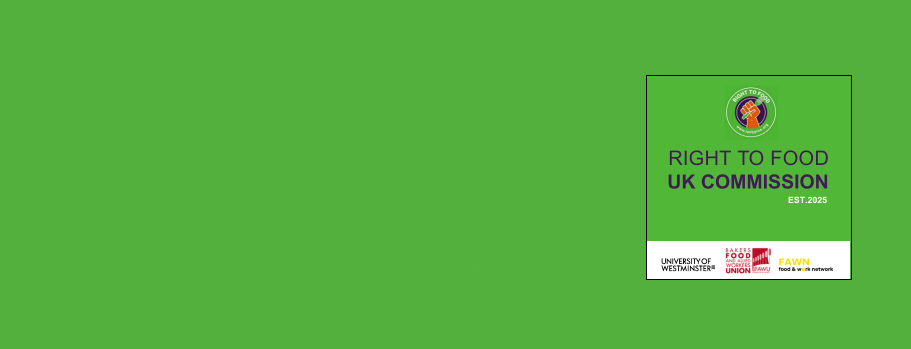
Right To Food UK Commission
Call For Evidence
Right To Food UK Commission - Call For Evidence
The Right to Food UK Commission is collecting evidence and lived experiences regarding feeding families and communities in the UK. What is working to improve access to food and what is not?
This is an opportunity to contribute your experiences and ideas, to help reduce the numbers of people who go to bed hungry in the UK.
We want to hear from as many Individuals, community leaders, community groups, non-government organisations, academics and food service providers, health and social workers and activists for the Right to Food campaign.
All are welcome to raise their voices and share your experiences.
Evidence can be reports and work completed in the last few years or completed for the Commission.
Your inputs will contribute to the Commission Report and Right to Food legislation roadmap, which will use evidence submitted to develop an Action Plan for the UK to make the Right to Food a reality by 2030.
There will be 6 Commission Evidence Sessions held around the UK between January and May 2026, supported by community conversations in each region.
We invite:
A. Written evidence on:
Food insecurity in the UK, challenges and solutions that are having a positive impact
Experiences of seeking support for food in the UK (food banks, food pantries, soup kitchens)
Experiences of the impact of free school meals
Experiences of the impact of community kitchens
Experiences of the impact of social protection safety nets such as income support
Evidence on the importance of a living wage for all on the ability to feed individuals and families
The impact of policies that affect families’ abilities to feed themselves and their communities (both positive and negative)
Evidence on solutions that reach those most marginalised including homeless, unemployed and those living with ill health or disability
How a right to food law could work in the UK, including evidence from right to food cities on lessons learned
What should the right to food law include regarding government duties?
How could we monitor the impact and progress of a right to food law?
What type of accountability mechanism would ensure the voices of those most impacted are collected and acted upon?
B. Community (Individual) Voices
We also really want to hear from people with lived experience of food insecurity. Please share your views about feeding yourselves and your families and help to shape the work of the Right To Food UK Commission. Click here to complete our Community Voices Survey.
Ethics and consent guidance
If you are an academic organisation and/or an organisation working with children, young people and/or vulnerable adults, you will need to ensure your submission complies with ethical confidentiality and consent guidelines. The Commission can share our information sheets and consent forms with you. Thank you for your voices. Please contact the Right To Food Commissioner responsible for ethics and consent, Regina Murphy Keith, on: R.keith@westminster.ac.uk